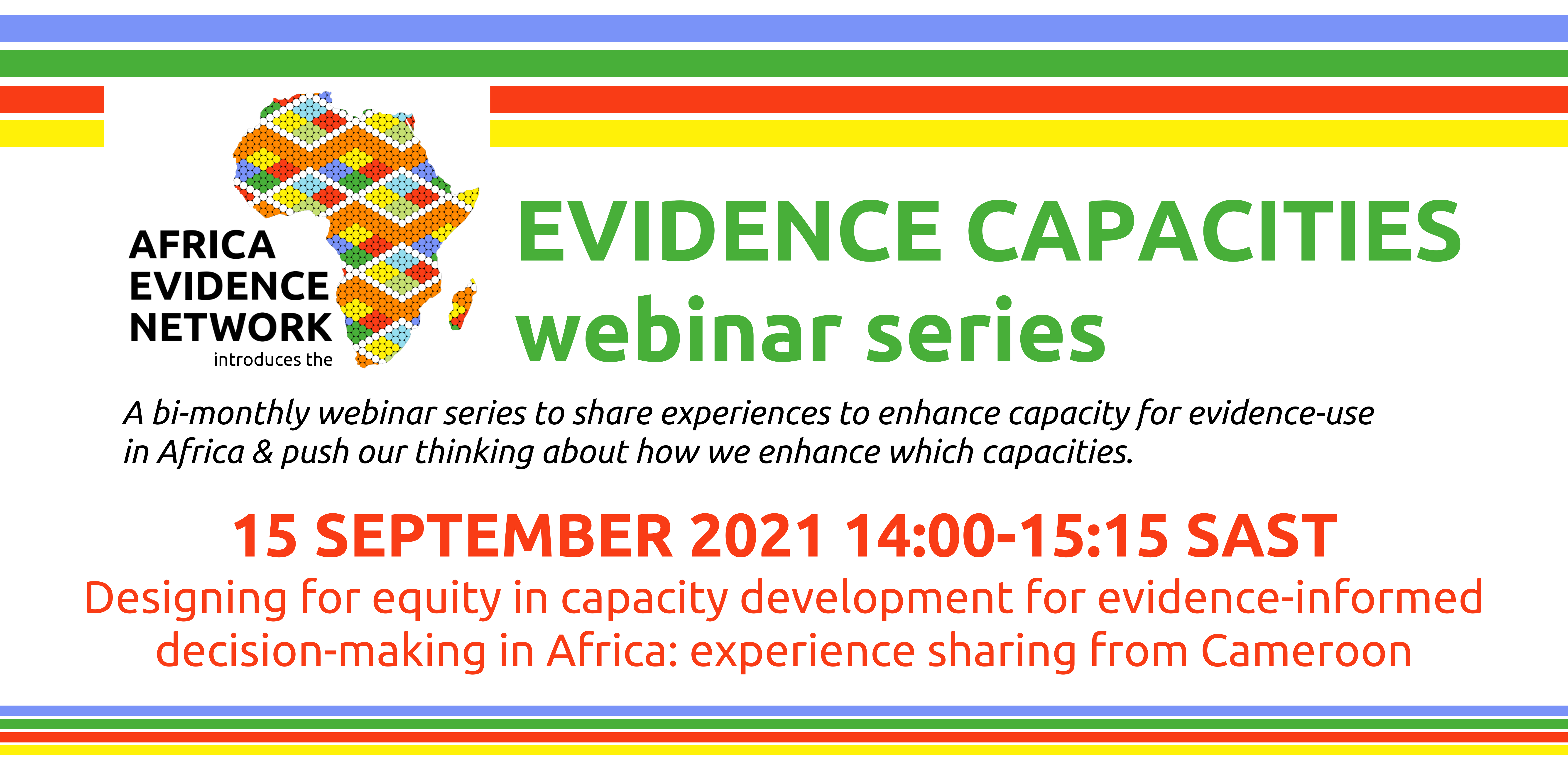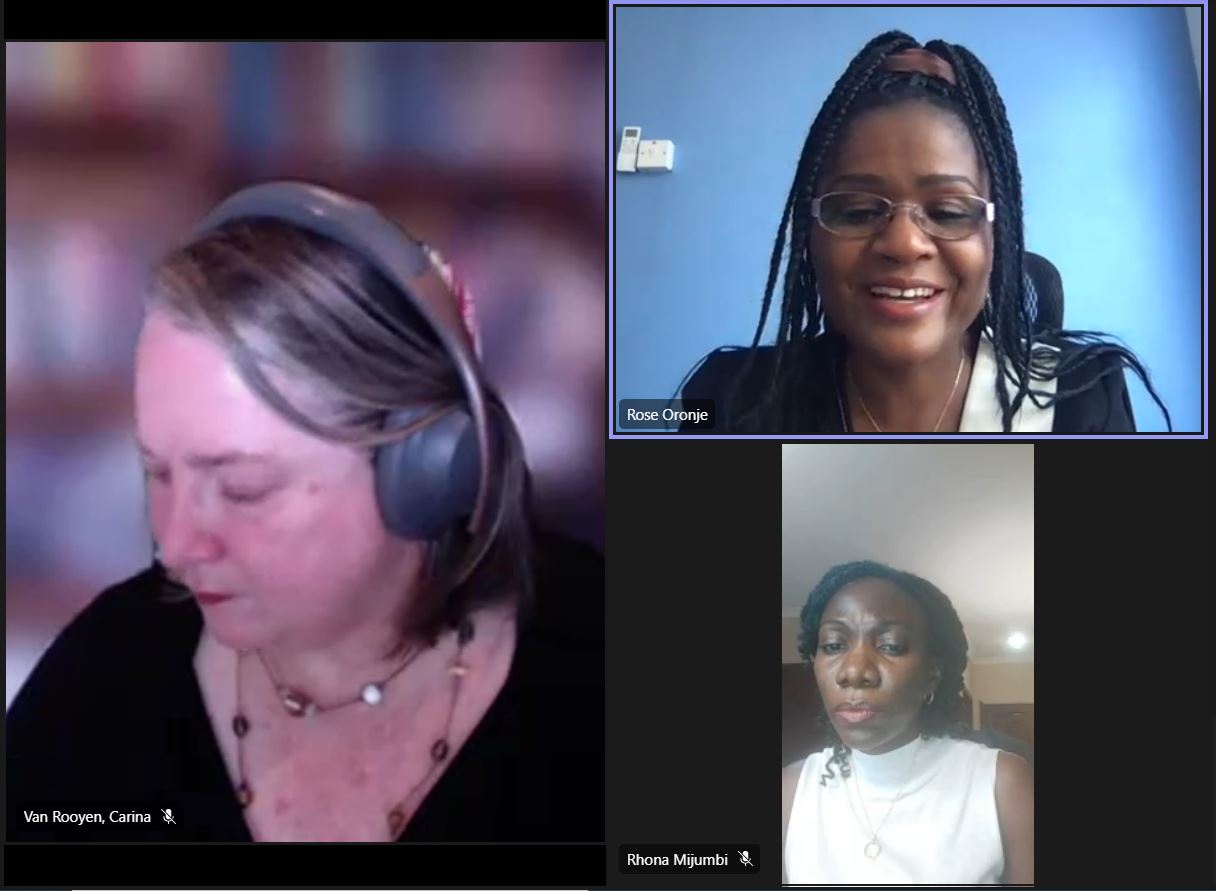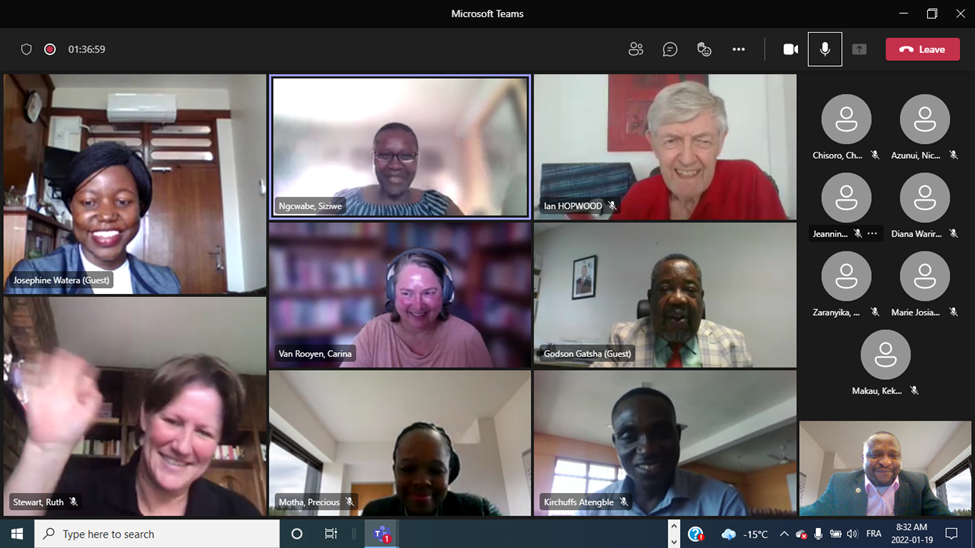
This blog post is based on the second webinar of the new Evidence Capacities webinar series, hosted by the Africa Evidence Network (AEN). The AEN Evidence Capacities webinar series aims to create a platform for sharing experiences and ideas that push our thinking about how we enhance capacities for evidence-use in Africa. The series also strives to enhance connections that can lead to collaborations among AEN members to strengthen evidence capacities using evidence- and practice-informed approaches. It is our hope that these discussions will be the basis for improving and illustrating the AEN’s Manifesto on capacity development for evidence use in Africa. Be sure you catch up with the whole series; find all the recordings, blog posts, and presentations from past webinars in this series here.
Incorporating equity in the design of capacity development interventions
The second webinar in the AEN’s Evidence Capacities series which was entitled Designing for equity in capacity development for EIDM in Africa: Experience sharing from Cameroon was held on the 15th of September. This webinar builds on the first webinar which focused on the meanings and broad orientation of capacity development for evidence use in Africa. One of the elements of the African evidence-informed decision-making (EIDM) capacity development approach is designing for equity. The first panellist for the second webinar was Patrick Okwen who is the team lead at Effective Basic Services Africa (eBASE Africa), with a background of training in medicine and a keen interest in EIDM. Waah Clotilda Andiensa was the second panellist; she is an educationist, gender equality, and sexual reproductive health rights advocate and peace builder. Clotilda is also the Founder and CEO of the Centre for Advocacy in Gender Equality and Action for Development (CAGEAD). The last panellist was Evelyne LUM who has served for seven years as an executive director of the Hope for Vulnerable Children Association (HOVUCA).
In a talk-show setting, with the excellent facilitation by Beryl Leach a Global Excellence and Stature at the Africa Centre for Evidence, the three speakers shared their knowledge and experiences in designing capacity development interventions in Cameroon. They explicitly addressed unequal gendered power dynamics and the use of equity-focused implementation evidence to design effective capacity development interventions to help ensure equal outcomes. They focused on how to innovate and improve equity-focused capacity development in the EIDM sector in Africa to ensure that it’s based on African knowledge, ways of doing, and expertise.
Part of the discussion was how to integrate and address power dynamics in the design of capacity development interventions. At eBASE Africa, they are building capacity in the EIDM space to get more research evidence into decision-making. At CAGEAD, after receiving training in systematic reviews from eBASE Africa and other organisations, they focused on enhancing the capacity of women and girls to find the evidence needed for the issues they face. An example cited was CAGEAD’s menstrual hygiene programme, which targets not only girls but also people with disabilities. HOVUCA similarly, in the first instance, considers access to capacity development initiatives as part of designing for equity. They start their capacity development by consciously considering who will benefit/not. Their aim is to develop the capacity of adolescent girls and women to know how to tackle problems regarding HIV/AIDS, given that Cameroon has a high rate of HIV/AIDS amongst adolescent girls and women.
Innovative approaches in delivering capacity development
eBASE Africa enhances the capacities of practitioners and communities to use evidence in decisions, to improve livelihoods especially for underserved populations in Cameroon. For this, they have developed innovative tools, such as an evidence barometer. They work with policy-makers – in a co-production fashion – to generate evidence, evaluate the policy, and make recommendations based on the evidence barometer scoring system. This is automated evidence brokering tool is adapted for use by policy-makers and development agencies with an emphasis on the essential factors that are needed for evidence implementation to be successful. Through co-production, skills and capacities are shared between the eBASE team members and Cameroonian policy-makers. The evidence barometer cuts across several factors including equity, stakeholder engagement, and how resources are being distributed.
Another innovative approach eBASE Africa uses to develop evidence capacities is “Evidence Tori Dey,” a Pidgin phrase that translates into English as “let’s talk evidence.” This tool involves providing access to research evidence to non-literate communities by using storytelling in the language that the community speaks. This is done by translating complex research language into clear stories where evidence statements are developed. In essence, an African storyteller shares research with the community through the telling of a story that resonates with the community with the aim of informing and motivating members of that community about the findings of a specific research issue.
Challenges in the implementation of equity-focused capacity development interventions
Irrespective of the high demand for innovative equity-focused capacity development approaches, there remain resource challenges. For instance, funders are strict in terms of their funding requirements and who they fund, usually favouring larger organisations over smaller community-based organisations. A risk of this funding approach is that the large organisations might not be as active in local communities invariably negatively impacting marginalised groups. There are also some funders that are hesitant to fund new and innovative approaches to evidence capacity development for fear of failure and because of a possible lack of trust.
Beryl urged all of us, including donors, that “we should try more, fail more and learn better.” And we were reminded of the government as a source of financial support for EIDM capacity development efforts. The panellists also acknowledged that funding for research on equity in EIDM capacity development, as with many other areas in low- and middle-income countries, are scarce. Collaboration and networking on this should get much more of our attention.
Key takeaways from the discussions
From me a few takeaways from a stimulating discussion included:
(1) To design our EIDM capacity development interventions for equity, we should be informed by research, but we should also be aware that the research itself should be equity-aware.
(2) Stakeholder engagement is crucial when designing your research and capacity development interventions.
(3) Based on the lessons learnt from the organisations represented on the panel, we should consciously design for equity by factoring in gender, religion, physical ability, etc. And making sure that money is spent on equity matters, including to disaggregate our data for equity considerations.
Taking the conversation forward
We are collectively and collaboratively “weaving a fabric” by contributing all these lessons and experiences from the various organisations towards what African EIDM capacity development looks like. The AEN Manifesto started this off; this webinar series continues to build the identity of African EIDM capacity development.
To take the conversation forward, here are a few discussion points to consider, though you are welcome to add more.
(1) What are examples of what explicitly addressing inequities contributes to “evidence capacities to ensure the Africa we want”?
(2) What do you think makes it hard in your context to integrate equity into the design of EIDM capacity development?
(3) Aside for access, what are other crucial elements of designing our EIDM capacity development for equity?
(4) What are the crucial aspects of capacity development that we must make sure we do differently to ensure that everyone using evidence has well-developed gender and equity lenses?
I would like to invite you to continue the conversation asynchronously via LinkedIn until the next evidence capacities webinar in our series, where you will get an opportunity to learn more about capacity development aimed at changing systems.
About the author: Charity Chisoro is a programme officer responsible for leading the capacities workstream at the Africa Evidence Network Secretariat, under the communities portfolio at the Africa Centre for Evidence.
Acknowledgements: The author(s) is solely responsible for the content of this article, including all errors or omissions; acknowledgements do not imply endorsement of the content. The author is grateful to Dr Carina van Rooyen, Siziwe Ngcwabe and Precious Motha for guidance in the preparation and finalisation of this article. The author would also like to thank Natalie Tannous for her editorial support.
Disclaimer: The views expressed in published blog posts, as well as any errors or omissions, are the sole responsibility of the author/s and do not represent the views of the Africa Evidence Network, its secretariat, advisory or reference groups, or its funders; nor does it imply endorsement by the afore-mentioned parties.
Suggested citation: Chisoro C (2021) Designing equity into evidence-informed decision-making capacity development in Africa: Experiences from Cameroon. Blog posting on 05 Nov 2021 that is part of the AEN blog series on the Evidence Capacities webinar series. Available at: https://www.africaevidencenetwork.org/en/learning-space/article/112/


